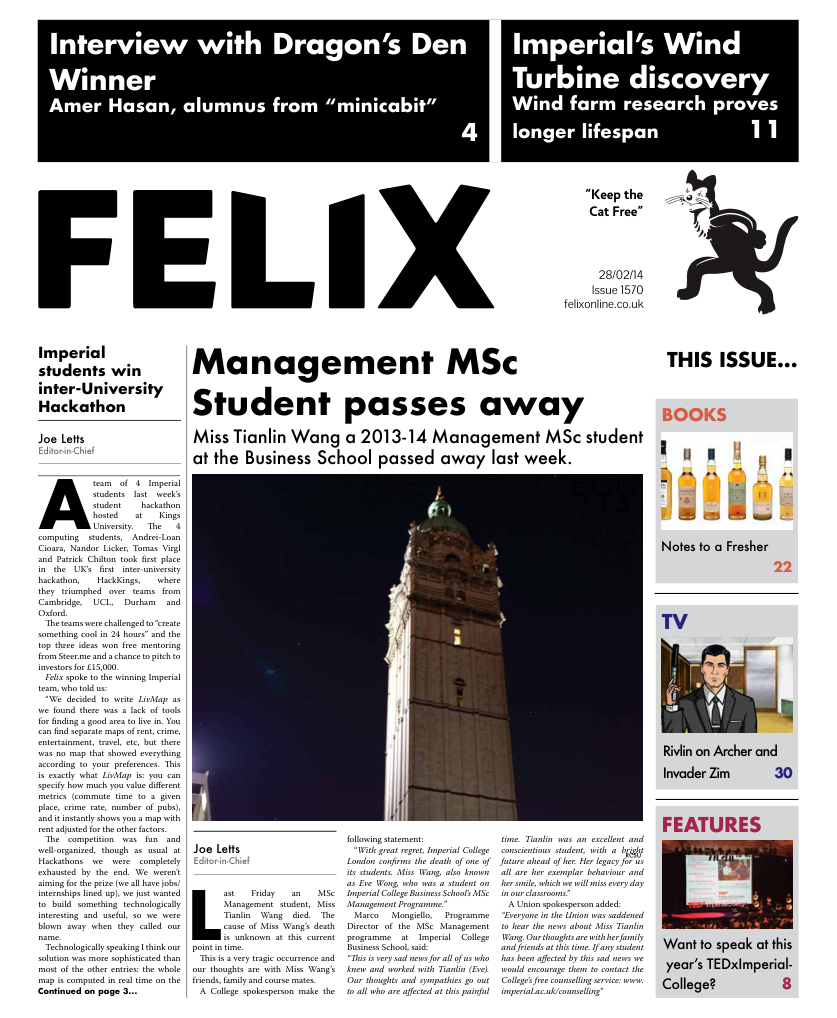More reasons to bee worried
William Hunter tells us how the honeybee is bringing the bumblebee down too
There have been many attempts to explain the global decline of bumblebees in recent years, with blame often lying with climate change or pesticides.
However, a recent article in scientific journal Nature suggests the problem might lie a little closer to the hive. It appears that the cause could be partially linked to their domestic cousin, the honeybee.
Professor Mark Brown and his team from Royal Holloway, University of London have identified two separate diseases that have potentially ‘spilled over’ from honeybees into bumblebee populations.
Deformed wing virus (DWV) – a fungal infection which has previously been shown to significantly shorten the lifespan of honeybees – is now presenting itself among bumblebees. It is thought the disease passes back and forth between the two species when a bumblebee enters a plant previously visited by an infected honeybee.
Assessing 26 sites across the UK, the team were able to build on previous levels of knowledge and determine an idea of national numbers rather than just local ones. However, co-author Dr. Matthias Fürst warns that this research is not definitive proof that the disease is passed from honeybees to bumblebees rather than vice versa. Their suspicions only span from the fact the disease is more prevalent in honeybees.
DWV has been shown to significantly shorten the lifespan of honeybees and according to Prof. Brown this will “impact massively on their ability to go out to collect food and look after other bees.” The effects of DWV were present in 11% of the bumblebees surveyed.
Not only will this have a noticeable effect on bee populations worldwide, but the knock on effects will have considerable impact on our lives too. Bumblebees are responsible for pollinating ~70% of the world’s flowering plants each year and according to the Guardian, in the US alone bumblebees provide $3bn (£1.8bn) worth of crop pollination annually. Preventing the further spread of this disease is therefore of extreme importance.
Don’t panic too much though, as Dr David Aston – president of the British Beekeepers Association (BBKA) – has stated that the key to prevention of most diseases in bees lies with good husbandry skills. The onus therefore lies with all those of you in Shoreditch with your roof top beehives or the floppy haired masses pumping out artisanal honey at farmers markets of Sussex.
As always, prevention is better than cure.
DOI: 10.1038/nature12977





